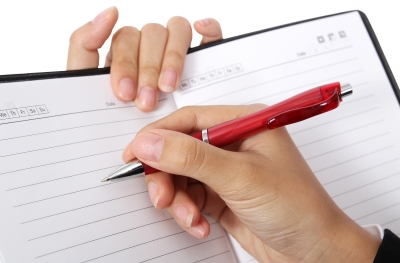10 Ways to Overcome Writer's Block
For a writer, nothing is scarier than staring at a blank page. The thought of filling the empty screen with words may be too overwhelming, and the negative voice in your head keeps on telling you that you can’t do it.
Every writer experiences writer’s block from time to time, and each one has looked for ways to overcome it. Writer’s block can be very frustrating. As a writer, you know you can write but there are just times when you feel like you are stuck. Nothing comes to mind, inspiration ceases to exist, and failure seems to be looming.
There is no one-size-fits-all approach for this dilemma; you must find what works best for you. To give you some ideas, here are some tips on how to overcome writer’s block. Keep in mind that procrastination is your enemy, and you need to eliminate it to make productive use of your time.
10 Tips to Get Over Writer’s Block
1. Get things moving.
Perhaps you are not a fitness buff, but you may be inspired to hit the gym if you are stuck on your writing. Exercise is a great way to get blood moving through your brain, which could trigger your creative juices to flow effortlessly. Try lifting some weights or simply walking around the park. You may find that you are more focused at your task after working out.

2. Disconnect from the Internet.
Many people often say that distractions are to blame for their lack of productivity, especially in today’s high-tech world. But do you really have to put the blame on things over which you have control of? The real culprit here is lack of discipline. Sure, it could be very tempting to check those email messages, upload your recent photos on Facebook, or read some tweets on Twitter. But all this takes away precious time that could be used for more important matters. Try working offline for a change. You might be surprised at how much more efficient you could be if you eliminate the things that distract you the most. And isn’t it more fun to spend your time on social media if you have no worries left in your mind?
3. Change your work environment.
Have you been writing at the same desk for months? In a room that is filled with paintings and photos that used to inspire you but doesn’t have that same effect now? Consider changing your work environment. Take your laptop with you and work in your favorite coffee shop. Or perhaps go to the park and see if the noise and laughter of kids playing help you get started with your writing. Do not be afraid of change; sometimes, getting out of your routine is all you need to get rid of writer’s block.
4. Make an outline.
Ask yourself: Which is better – staring at a blank screen or looking at a notepad where the tasks are already jotted down? Get back to the basics; everything starts with careful planning. It would take much longer for you to write about something if you just sit in front of the computer and hope the ideas will come naturally. This may happen, but it is better to see the big picture beforehand to allow you to think more clearly and prepare how you will write your piece.
5. Break down big tasks into small ones.
It has been months and you feel frustrated for not being able to make progress with the novel you are working on. Each morning when you wake up, you feel intimidated to continue your writing, fearing that you might just not have the talent to write a novel. Instead of further doubting yourself, construct a plan of attack: determine the best way to finish your writing by setting goals and breaking down the job into small, manageable tasks. Focus on the first chapter first before moving on the next. Let your ideas flow, do not be overly strict with your drafts, review and edit your work later. Soon enough, your novel is complete and ready for publication.

6. Carry a notebook at all times.
Sometimes, writer’s block is a result of lack of ideas to write about. And in some cases, the best topic ideas come to mind when you least expect them. This is the reason why it is very useful to carry a notebook with you everywhere so you can jot down anything that pops in your head at any time. This is all made easy with the emergence of smartphones and tablets. This allows you to never run out of ideas and keep you excited about writing your next piece.
7. Lower your standards.
Having high standards has its benefits, but it could also be the reason why you can’t get started. Many writers often set their standards at a high level even before starting their work. Some think too much about what their readers want, others spend too much time worrying about creating the perfect literary piece. While these thoughts have their rightful places in the writing process, it could benefit you more if you set them for later. At first, lower your standards and write freely. Forget proper formatting, grammar rules, spelling mistakes; you can always revise your work later.

8. Have some caffeine.
If you are stuck, get up and make yourself a cup of coffee. Caffeine is a quick solution to battle a lazy mind. It stimulates your brain and gives you much needed energy to get your day going. You could also try the caffeine nap – take a nap for 15 minutes immediately after drinking coffee. You may find yourself unusually lively once you wake up.
9. Listen to music.
Writing while listening to music is a personal favorite. Music calms and relaxes the mind, allowing you to better focus on your work. Those headphones bring you to a world of your own – where your ideas form beautiful pictures and the surrounding noises of the real world are unheard. Finding the right music for you is essential. Some find jazz and classical music very soothing; others like to listen to artistic instrumentals. Pick which type of music suits you best.
10. Get started.
Many writers find that the most difficult challenge is the moment you first begin writing. It seems a tall order, and everything that you have imagined earlier seems to have vanished. But many also agree that once you have jumped over this hurdle, the rest just comes easily. Do not overthink and just write. Perhaps the best way to beat writer’s block is to keep on writing. Once that first paragraph is done, you will get into the flow and write effortlessly.








